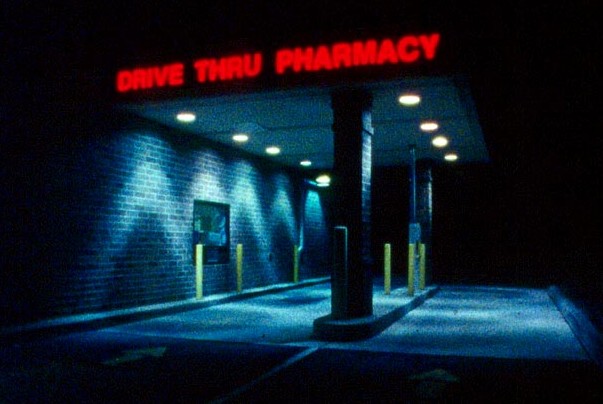


Four 16mm films from the 1970s, 1980s and early 2000s chart a trajectory of “strange pilgrimages”—both real and imagined—through the maze of permeable structures that make up our contemporary urban landscape. Hollis Frampton’s landmark Nostalgia (1973, 35 mins.) tells of the artist’s esthetic transformation through a series of deteriorating photographs. Abigail Child’s Mutiny (1983, 11 mins.) casts the interior and exterior facades of the city itself as instruments for musical and visual play, while Julie Murray’s Untitled (light) (2002, 5 mins.) posits the post-9/11 nighttime sky as something both heavenly and ominous. Finally, Deborah Stratman’s breakthrough film In Order Not To Be Here (2002, 33 mins.) is a lucid and mysterious rendering of empty shopping malls and parking lots that segues into a fearful meditation on surveillance and the boundaries of urban transgression. (85 mins.)
Programmed by Scott Stark for Experimental Response Cinema.
Focus Group: Pilgrim’s Process is presented in collaboration with Experimental Response Cinema and in partnership with The Contemporary Austin.
About the Program
Focus Group is an experimental film screening series introducing visitors to seminal filmmakers and their contemporary counterparts. Accompanied by presentations from film aficionados, the screenings stimulate conversation about experimental film and its various formats.
Focus Group is presented in collaboration with Experimental Response Cinema, an Austin-based collective of avant-garde film and video artists devoted to bringing local, national and international experimental films to Austin screens.